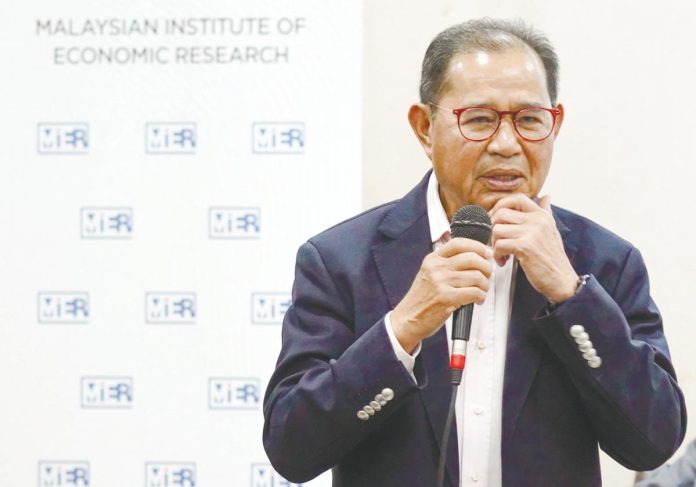KUALA LUMPUR: The government’s move to lower the price of RON95 will help ease living costs and support the economy, said Malaysian Institute of Economic Research (MIER) chairman Tan Sri Mohd Effendi Norwawi.
He said the government is addressing one of the public’s most pressing concerns – transport and fuel costs.
“The government’s consideration will be, like anything else, they will look at what are the biggest needs of the people today. In a way, they’re doing it right … and looking at this,” he told reporters at Brown Bag Talk titled “A Journey Through the Looking Glass: Towards Future-Proofing Malaysia’s Food Security today.
Effendi said the government will try to give as much as they can afford without affecting the national budget overall. “I think it’s always a balance of government. I think they’re doing their best. Honestly, at least they have a good intention.”
Former MIER chairman Tan Sri Sulaiman Mahbob also welcomed the move, saying it would provide relief for many Malaysians. “This will help many by reducing transportation costs. Real income will improve, and this is good for the general public.”
When asked whether the fuel price reduction might affect the national budget, Sulaiman said the impact should be assessed holistically.
“Whether it’s a cost or a benefit, if the outcome is positive for the economy, then it’s ultimately good for the budget as well.”
Prime Minister Datuk Seri Anwar Ibrahim announced on Wednesday that the price of RON95 petrol will be reduced to RM1.99 per litre for eligible motorists from RM2.05 per litre currently while fuel subsidies are rationalised.
Anwar said it will benefit around 18 million motorists, including youths as young as 16 and gig economy workers.
The prime minister added that full details of the RON95 subsidy mechanism would be announced by the end of September.
“When the RON95 subsidy rationalisation takes effect, Malaysians will enjoy a lower fuel price of RM1.99 per litre,“ said Anwar.
On a separate matter, Effendi said Malaysia must reassess its growth priorities under the 13th Malaysia Plan based on current global trends.
“I think agriculture and food security will be a priority,” he said.
The sector, he added, has been on the national agenda since the 1970s, but now needs to be re-prioritised as a key national focus. “It’s time to turn this into a real national agenda. It’s a major opportunity for Malaysia.”
Effendi said beyond addressing food deficits and import bills, Malaysia has the potential to become a global food producer – similar to its success in palm oil and rubber – by leveraging its expertise, institutions such as Mardi, and modern agricultural technologies.
“If we’ve done it with palm oil and rubber, we can do it with food production. But we need a strong, comprehensive modern agriculture plan,” he added.








